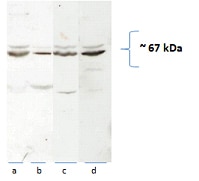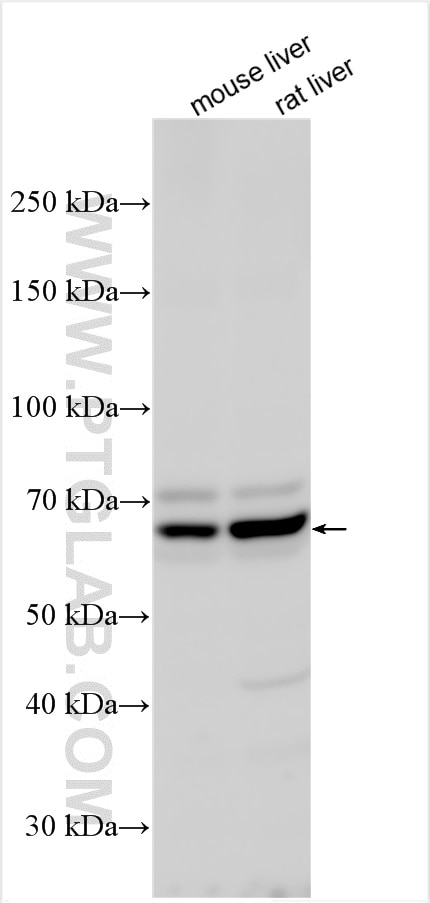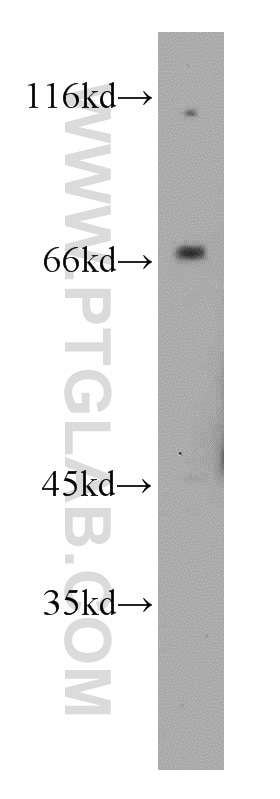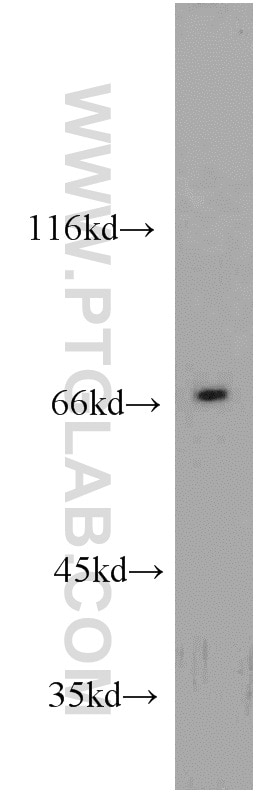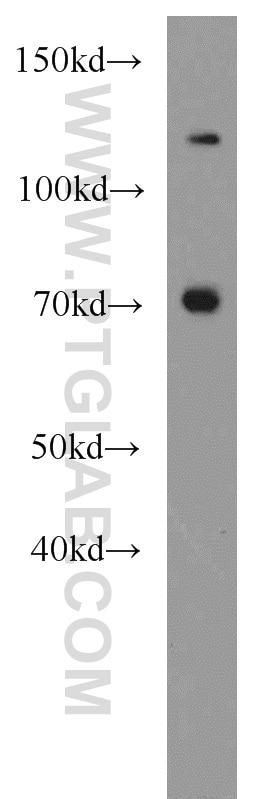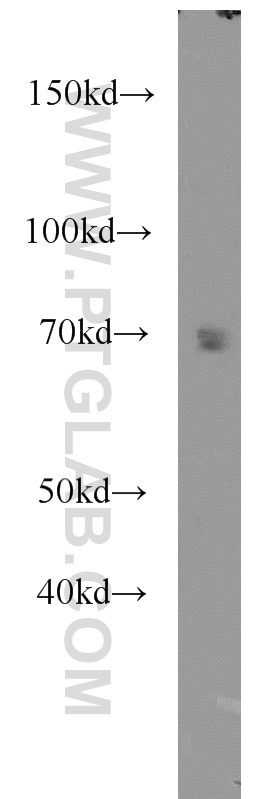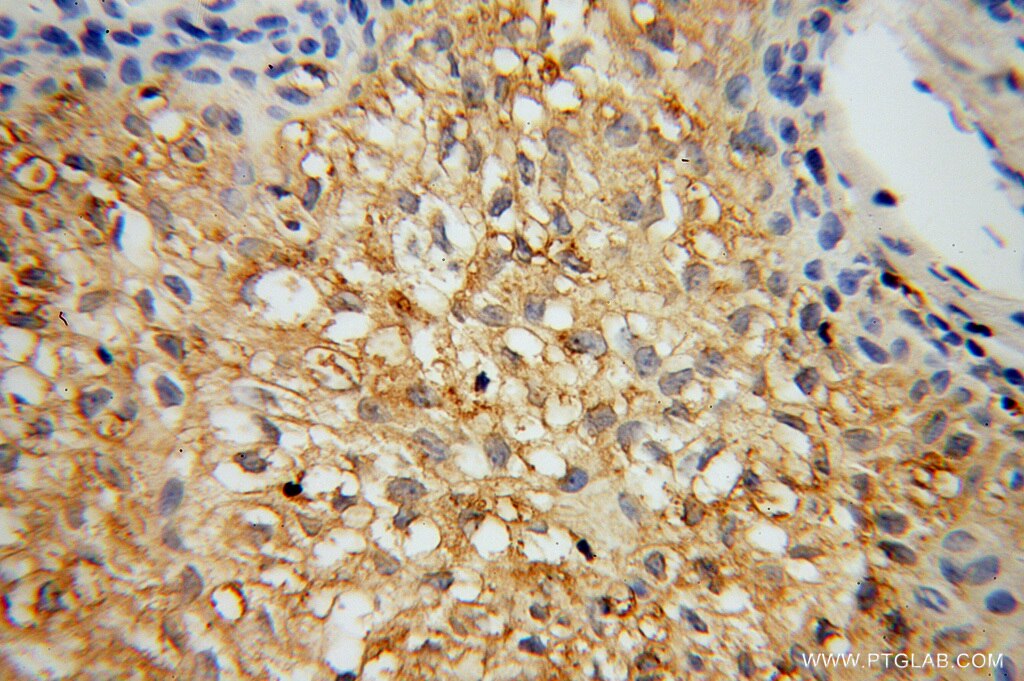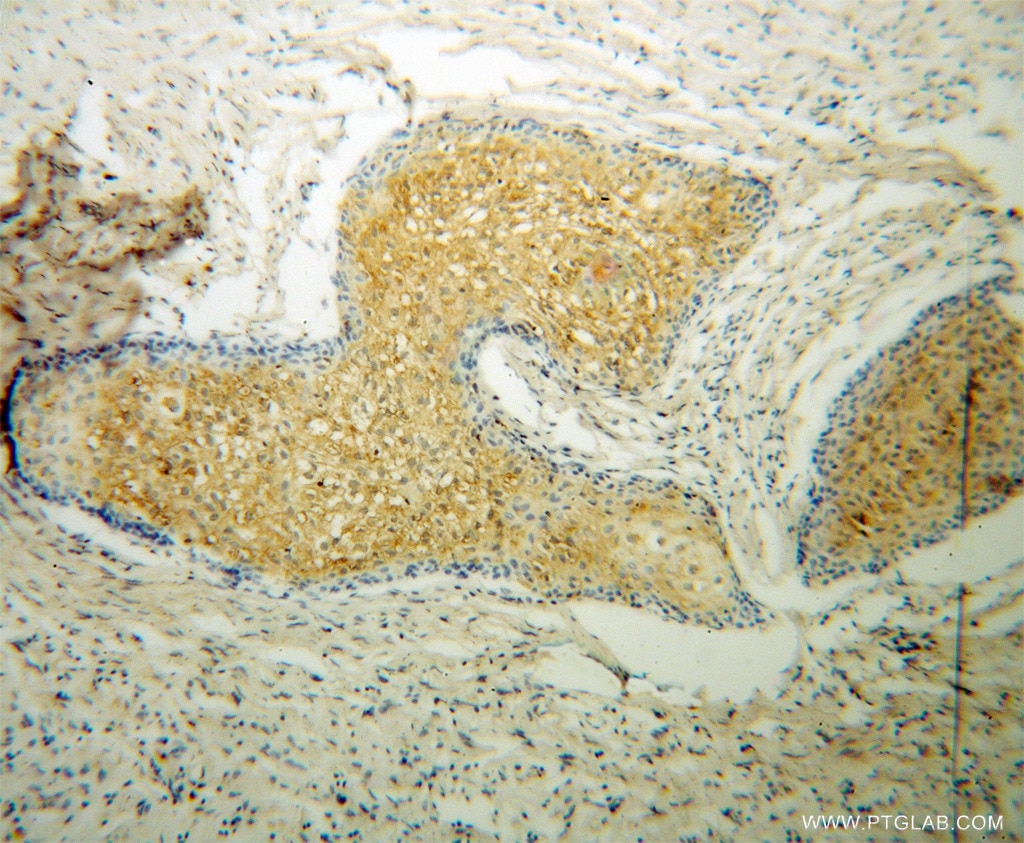- Featured Product
- KD/KO Validated
CAT-1 Polyclonal antibody
CAT-1 Polyclonal Antibody for WB, IHC, ELISA
Host / Isotype
Rabbit / IgG
Reactivity
human, mouse, rat and More (2)
Applications
WB, IF, IHC, CoIP, ELISA
Conjugate
Unconjugated
Cat no : 14195-1-AP
Synonyms
Validation Data Gallery
Tested Applications
| Positive WB detected in | mouse liver tissue, Jurkat cells, HepG2 cells, rat brain/liver tissue, mouse heart tissue, rat liver tissue |
| Positive IHC detected in | human osteosarcoma tissue Note: suggested antigen retrieval with TE buffer pH 9.0; (*) Alternatively, antigen retrieval may be performed with citrate buffer pH 6.0 |
Recommended dilution
| Application | Dilution |
|---|---|
| Western Blot (WB) | WB : 1:500-1:2000 |
| Immunohistochemistry (IHC) | IHC : 1:20-1:200 |
| It is recommended that this reagent should be titrated in each testing system to obtain optimal results. | |
| Sample-dependent, Check data in validation data gallery. | |
Published Applications
| KD/KO | See 2 publications below |
| WB | See 18 publications below |
| IHC | See 8 publications below |
| IF | See 3 publications below |
| CoIP | See 1 publications below |
Product Information
14195-1-AP targets CAT-1 in WB, IF, IHC, CoIP, ELISA applications and shows reactivity with human, mouse, rat samples.
| Tested Reactivity | human, mouse, rat |
| Cited Reactivity | human, mouse, rat, pig, canine |
| Host / Isotype | Rabbit / IgG |
| Class | Polyclonal |
| Type | Antibody |
| Immunogen | CAT-1 fusion protein Ag5398 |
| Full Name | solute carrier family 7 (cationic amino acid transporter, y+ system), member 1 |
| Calculated Molecular Weight | 68 kDa |
| Observed Molecular Weight | 67-70 kDa |
| GenBank Accession Number | BC063303 |
| Gene Symbol | SLC7A1 |
| Gene ID (NCBI) | 6541 |
| RRID | AB_2190723 |
| Conjugate | Unconjugated |
| Form | Liquid |
| Purification Method | Antigen affinity purification |
| Storage Buffer | PBS with 0.02% sodium azide and 50% glycerol pH 7.3. |
| Storage Conditions | Store at -20°C. Stable for one year after shipment. Aliquoting is unnecessary for -20oC storage. 20ul sizes contain 0.1% BSA. |
Protocols
| Product Specific Protocols | |
|---|---|
| WB protocol for CAT-1 antibody 14195-1-AP | Download protocol |
| IHC protocol for CAT-1 antibody 14195-1-AP | Download protocol |
| Standard Protocols | |
|---|---|
| Click here to view our Standard Protocols |
Publications
| Species | Application | Title |
|---|---|---|
Cell In vivo CRISPR screening reveals nutrient signaling processes underpinning CD8+ T cell fate decisions.
| ||
J Cachexia Sarcopenia Muscle Derangements of amino acids in cachectic skeletal muscle are caused by mitochondrial dysfunction. | ||
J Steroid Biochem Mol Biol High glucose impaired estrogen receptor alpha signaling via β-catenin in osteoblastic MC3T3-E1. | ||
Mol Cell Proteomics Hypoxia is a dominant remodeler of the effector T cell surface proteome relative to activation and regulatory T cell suppression. | ||
Front Oncol An Inflammatory Response-Related Gene Signature Can Impact the Immune Status and Predict the Prognosis of Hepatocellular Carcinoma. | ||
Exp Neurol Pseudotype-dependent lentiviral transduction of astrocytes or neurons in the rat substantia nigra. |
